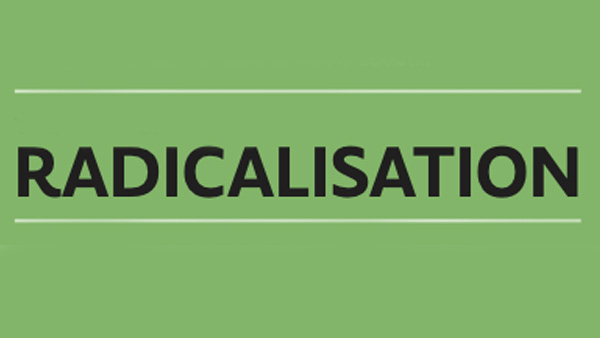
Radicalisation: Need to deliver a harder blow to deal with radicals who have no faith in human rights
In the recently concluded meet of the IGs and Das, the prime focus was on dealing with the threat of radicalisation. Let us not be mistaken that is the biggest threat India faces today
New Delhi, Jan 25: The scores of incidents involving radical Islamists and the fast changing nature of terrorism are an indicator that there is a need to go that extra mile to beat this problem.
During the just-concluded conference of the DGPs and IGPs, some Indian Police Service officers submitted papers which noted the rise in religious fundamentalism in India. This they noted was due to the high level of indoctrination, easy availability of modern means of communication, including encrypted form, cross border terrorism and Pakistan focusing on focusing on encouraging these radical groups.

Fighting the threat of radicalisation:
There has been a growing clamour by the Indian Muslims to aggressively assert their religious identity. In the killings of scores of Hindus be it in Rajasthan or Maharashtra or Karnataka, the radical Muslims want to also display their religious identity explicitly.
Moreover the various sects have been fighting to ensure that Islam returns to its purest forms and off late the push is extremely high.

Counter-terrorism experts feel that the trend normally has been to view terrorism as a multi-casual event. However post 9/11 the belief in an extremist political or religious ideology has attracted the attention of the counter-terrorism community across the world as one of the necessary casual factors of terrorism.
In the current discourse on terrorism radicalisation based approaches have a significant presence. However there is a tendency to avoid its exploration, either out of fear of wading into politically dangerous waters or due to the lack of awareness and insight.
Getting the argument right:
Abhinav Pandya, a Cornell University graduate in public affairs who has also written for the Vivekananda International Foundation points out in his book, Radicalisation in India points out that the dominant trend in discourse on radicalisation based-approaches has been to argue that this phenomenon is a result of deprivation, poverty, corruption, civil wars, repression and ungoverned places at the hands of state authorities.
Pandya tells OneIndia that the mainstream narrative downplays the role of the extremist Islamist ideologies such as Salafism, Wahhabism and Deobandism in Jihadi radicalisation and terrorism. He says in several quarters it is argued that there is no concrete evidence for direct linkages between Islamic radicalisation and terrorist violence. Even if the idea of radicalisation is de-hyphenated from the central debate on terrorism, the menace still needs to be tackled in its own right.
The way forward:
During the DG/IG conference a special emphasis was laid on countering radicalisation. It was said that the deep radicalisation by the Islamists had led to the emergence of sleeper cells and lone wolf terrorists.

Pandya points out that the society, civil services and bureaucracy need to first understand the problem. The problem is not just confined to writing research papers, he says while adding that the issue is a much deeper one.
Pandya warns that there is a need to work better on this as the fault-lines within the Hindus will get clubbed with this problem. Fault lines are being created within the Hindus for this exact same purpose. There is an existential conflict between the Sanatan civilisation and the religious ideology which believes in mass conversions and totalitarian values, he says.
We need to take a cue from the Israelis who have full understanding of the problem. It is time that we take this problem head on, Pandya says.
When Kanaihya Lal was killed in Udaipur there was a massive communal situation that had arisen. What would happen if similar incidents take place in 40 to 50 different places in India. The Islamist have a strong coordinated system in place. If such incidents take place in more cities, there would be a collapse. The radicals are not scared to use weapons, he says.
Pandya says that the police too need to take up such cases more seriously to avoid a Lal like fiasco whose complaint they had not taken seriously. Moreover if Lal's killers are hanged after such a long trial, justice is done, but the impact is lost. One must understand that you cannot deal with an enemy in this manner which has no faith in human rights.


 Click it and Unblock the Notifications
Click it and Unblock the Notifications


































